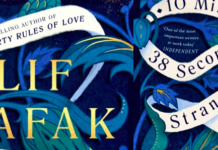The terms “Soli-Tutti,” “A Capella” and “Borusan” seemed interesting enough of a trilogy to entice me to attend an evening of musical discovery on Thursday, 13 February, at the Borusan Muzik Evi (Borusan Music House) in Beyoğlu. As a fan of classical music, I was very familiar with the company Borusan and its contributions to the musical scene in Istanbul. Also, I viewed “a capella” singing as a field requiring the utmost dedication, perseverance, and talent. I was game.
Before heading out, I decided to do a quick preview on YouTube of what was awaiting me in the hours to come. And, I was in for a surprise. These were not the beautiful a capella pieces that I had in mind. There was not so much a “song,” but rather a series of sounds, unnerving sounds from a creepy, scary, fiendish “other” world. Sounds that gave you chills and made your stomach turn.
My first instinct was to flee and run. Yet, I also still had faith and felt that Soli-Tutti, a group so dedicated to music as to go the challenging a capella route deserved some respect and attention.
So, with both trepidation and curiosity, I headed towards my destination: The Borusan Music House, a three-story nineteenth century building on Istiklal Caddesi, with glass walls that signal events and exhibitions worthy of attention. Simplified, gray, metal steps lit by neon light took me up to the floor of the performance. There was no separate stage set up, but chairs aligned along three sides of the room, leaving the center to the ensemble. There were perhaps sixty people in the audience, in line with the number of chairs set up at the venue. A unique performance for a selective audience.
Soli-Tutti made its entrance at the designated time, 8:30 pm. An ensemble of twelve vocalists dressed in black and looking very solemn, with an age range of 25 to 55, assembled in a semi-circle around conductor Denis Gautheyrie. The first piece was “Swan Song,” for twelve voices, by the late French-British composer Maurice Ohana. The music reminded me of Orthodox mass, but with sprinkles of opera, cacophony, and, even an instant of Swiss tyrolienne. The composer had played with tone and sound the way that a writer plays with words.
At times the lead vocalist, who had an impressive, clear soprano voice, would sing or “vocalize” a main theme, and the ensemble would build on it: accentuating, contrasting, or harmonizing in sequence or all at once! The vocalists were professional and precise. The music was unique and unpredictable. As we applauded in display of our appreciation in the end, Gautheyrie turned around and informed us that this was the last ever composition of Ohana, and that Soli-Tutti had had the privilege of performing the piece with Ohana himself just months before he passed away. And thus, I imagined, this is exactly the way he had meant for the piece to sound.
The next piece was no less intriguing. “Metro Vox,” for eight vocals, was composed by Jose Manuel Lopez in memory of composer Iannis Xenakis. In the next several minutes that followed, we experienced hisses, sirens, car horns, church music, boos, aaaahhhs, yelping in soprano tones, panting, and speech – from soliloquies to gibbering. All a capella. The rhythm would build up, voices would become synchronized for two or three seconds, and then disperse to a gibber again. A yelp, in soprano coloratura, a scream. Ladies hummed, while a gent delivered his soliloquy in French. Then, sporadic and organized rhythmic movements and clicks of the chin. And hums, and hushes of “ssss” again. Somehow, it did not come out as cacophony, but a composition of musical prodigy and mathematical precision. The composer had full mastery of the note and music, and had fused it with sarcasm and wit. As we applauded, Gautheyrie called on stage Lopez, and we discovered that the composer himself had been seated among the audience the whole time.
The third and final piece was “Nuits,” for twelve voices, of Iannis Xenaxis, the composer to whom Lopez had dedicated “Metro Vox.” This was the piece that I saw on YouTube. Gautheyrie surprised us when he turned around and informed us in Turkish that the piece was “composed for political prisoners.” My follow-up internet search described the piece as “vocalizing the anguish but sublime dignity of the oppressed.” And the piece did indeed just that. There were shrill notes and tremolos, unnerving, like ominous sounds just before the climax in a horror movie. There was calm, and serenity. Then sudden interjections of “BOING!” and “DOI-NG” and “BANG!” These interjections added humor and wit to the piece. However, they also felt like water drops dripped on the forehead, like Chinese water torture. To a piece dedicated to political prisoners, who knows, maybe this was an intended allusion. The interjections were followed by singing, an utterance, with the tone and coloratura of a flamenco vocal. A sound bringing together energy, agony, despair, and rebellion – perhaps another allusion.
“Nuits,” as well as its precedents took, twisted, stretched, hushed, rose, shaped the human voice into the thousands of shapes, forms and tones it could be molded into. It provided myriad allusions, to wit, to sarcasm, to calm, to anxiety and suspense. The vocalists were professional and precise, and so were the composers. It was not cacophony or random sounds they composed. I felt that they had played around with the human voice, sound, and tone the way Dali had played around with color, form, and perspective. Not out of novice, but out of the desire to create beyond “the norm” and break into unprecedented territory.










